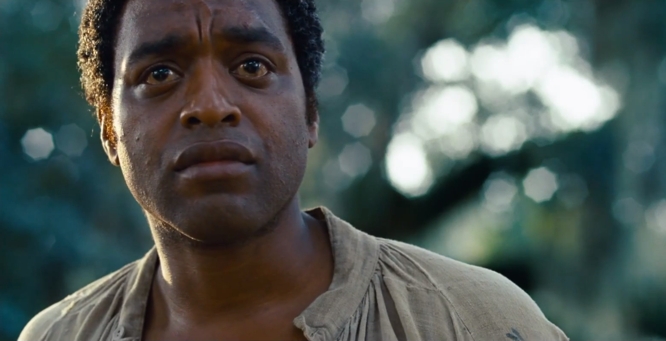With 12 Years a Slave, Steve McQueen continues to establish his auteurship as an unflinching director who tackles difficult topics pertaining to humanistic elements. In his debut, Hunger (2008), McQueen exposed the depths of dedication and despair that people are willing to endure in order to get their message across, while in his second film, Shame (2011), McQueen exposed the corrosive and damaging effects of sexual addiction. In 12 Years a Slave, McQueen focuses on the range of personas that humans exhibit to others, which is evident in the disparity between the “compassionate” and the sadist slave owners that Solomon encounters. Moreover, 12 Years a Slave forces viewers to observe humankind at its most debased state and witness the terrible dehumanization that occurs when one group believes that they are superior to another. With that said, Solomon’s trials and tribulations should not be interpreted as a message from McQueen that solely seeks to inform his audience of the horrors of American slavery, but also as a call to action to react to evil in the world and reach out to those in need.
This emotional weight is greatly enhanced by the film’s strong performances, particularly from the solemnly powerful lead actor, Chiwetel Eijofor. Since Chiwetel is onscreen for the vast majority of the film, the plot and events that take place in 12 Years a Slave are all seen and experienced through his character’s eyes. Moreover, although the physical burdens for Solomon are obvious onscreen, the expressions from Chiwetel alone succeed in communicating his internal struggles to survive and remain hopeful. In addition to Chiwetel, Michael Fassbender’s acting as Edwin Epps intensely illustrates the skewed mentalities that some people adopt to justify their actions. In one scene where the Epps plantation encounters a plague that destroys much of its crop, rather than entertain the notion that his own sins may be to blame, Epps believes that his slaves are a “Godless lot” who have cursed his land. In another scene, Epps justifies a violent assault on one of his slaves by claiming that he is guilty of no sin since they are his property and “a man does how he pleases with his property.” While Chiwetel and Fassbender both have excellent performances in the film, Lupita Nyong'o's acting as Patsey dominates the latter half of the film in a surprisingly powerful way. Although tragically tortured by her environment, Patsey's strong will and dreams of liberty are portrayed in a heroic manner, and are likely responsible for Solomon's continued drive to return home.
Despite Solomon’s story being one ridden with nightmarish events that are very difficult to watch, by the end of the film, 12 Years a Slave shines as a beacon of hope for an end to social inequality. Early into Solomon’s unfortunate journey, he is presented with the option to fight or passively survive. However, Solomon knows that survival cannot be enough and states, “I want to live.” Through this statement, Solomon not only declares his independence, but also acknowledges that through the humanistic embrace of actively pursuing equality, true freedom can be achieved; this theme shapes the focal humanistic element that McQueen’s third feature film seeks to address.


 RSS Feed
RSS Feed
